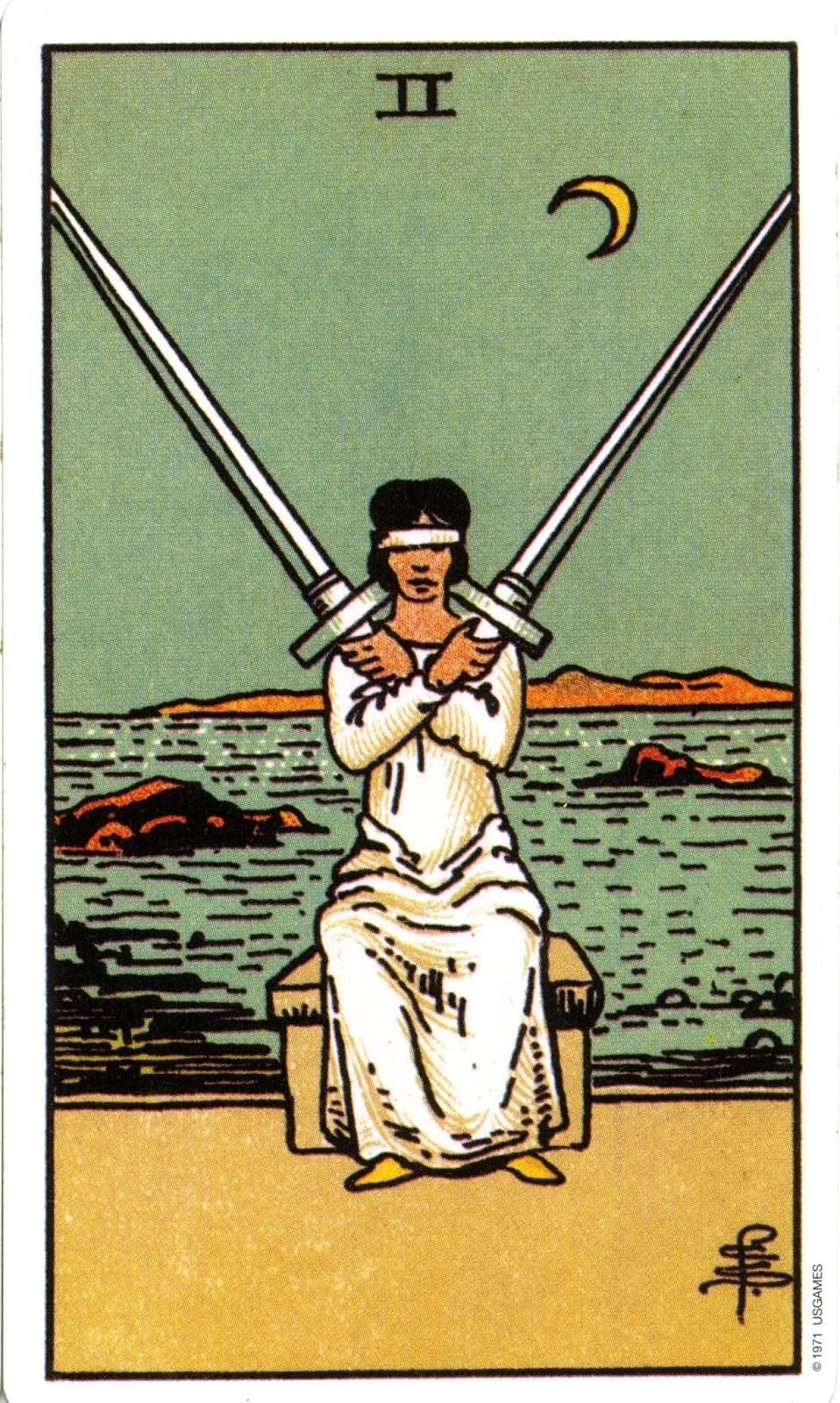Two of Swords
My favorite bad card in the deck.

Everyone who plays around with Tarot cards long enough winds up with a “bad” card that they love. I just barely persuaded my husband not to get the Ten of Swords tattooed on his body; traditionally, it shows a corpse with ten swords stuck in their body and means “utter ruin,” but he thought that if it took ten swords to kill you, then you must have put up a pretty good fight. I’ve heard multiple queer people read the Seven of Swords — which shows a person sneaking out of a tent, holding more swords than they can carry, and which means theft and dishonesty — as a card about code-switching, going stealth, and keeping secrets in order to be safe.
Both of these cards are from the suit of Swords, because most of the “bad” cards in the deck are Sword cards; Swords symbolize thought, language, intellect, which (in the somewhat insulting philosophy of the Tarot) means trouble. My favorite bad card is from the Swords suit, too — it’s the Two of Swords, a card I find so beautiful and comforting that, until recently, I didn’t know it was supposed to have a negative interpretation.
The Rider-Waite-Smith illustration for the Two of Swords shows someone sitting on the beach, at night, with a crescent moon shining down on them. They’re blindfolded, wearing some kind of white robe or nightgown, and they hold two swords, one in each hand; their arms are crossed over their heart, and the blades of the swords rest on their shoulders.
I think it was Rachel Pollack who pointed out that this would be a fairly impossible pose to hold, when you consider how big the swords are; each blade is longer than the person’s body. Holding even one sword like that upright would take a lot of strength, and lifting it one-handed would be agonizing. This person is lifting two at once, and then just keeping them up, for God knows how long. They have to keep each sword perfectly steady, because if they slip or tremor or lose focus, a sword will fall out of place and slice through their neck.
This is why the card traditionally means indecision or stalemate. It means being stuck between two bad options. Think about a kid being tormented by a bully at school: If they don’t stand up for themselves, the bully will keep picking on them forever, and no doubt get off on the spectacle of their mute submission. However, if they do stand up for themselves, the bully will double down, and use any imperfection or anger in their response to prove they “deserved” the abuse. Once the bully starts escalating, there’s no way to know how far they’ll go, or how bad things will get.
Silence presents an intolerable outcome, and speaking up also presents an intolerable outcome. One way or the other, one of those swords will slip, and when they do, you’ll get it in the neck. That’s what the card means, in its traditional context: You cannot hold both of those swords forever.
To which the Two of Swords responds: But what if I could?